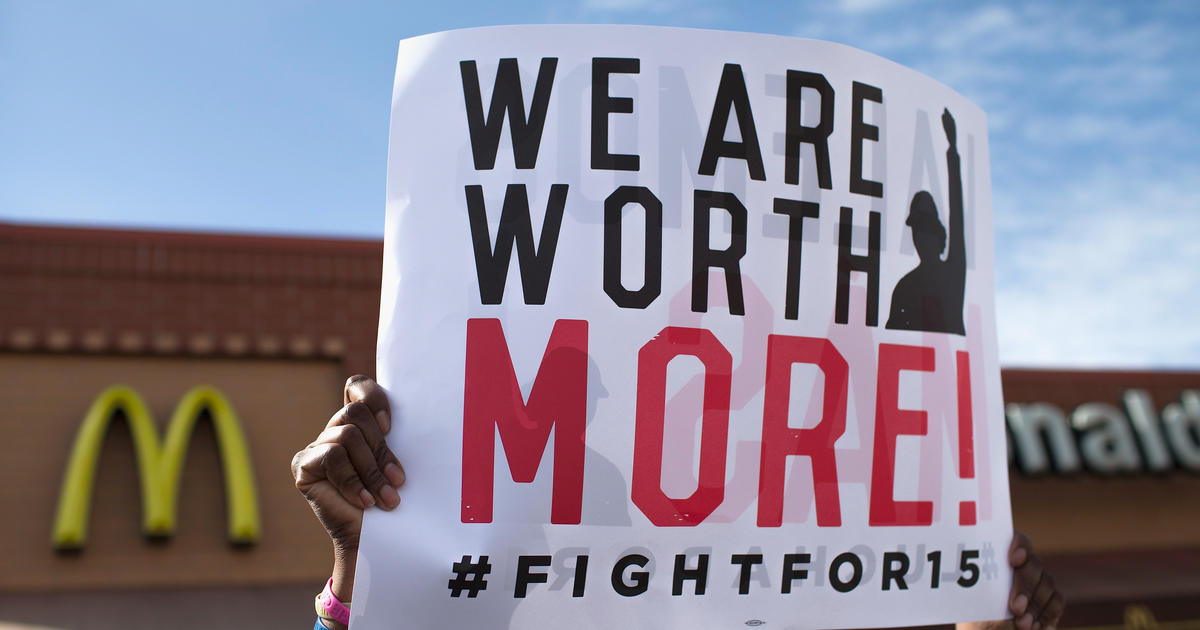MoreBack to News Headlines


Minimum wage would be $26 an hour if it had grown in line with productivity
CBSN
The federal minimum wage in the U.S. has remained glued at $7.25 an hour for the last 12 years, the longest stretch without a boost since it was first adopted in 1938. Yet there's another revealing figure that underscores how the minimum wage — created by Congress after the Great Depression as a way to ensure that Americans were fairly paid for their labor — has failed to keep up with the times.
Even as workers have been more industrious — helping drive corporate profits, the stock market and CEO compensation to record heights — their pay has flatlined, or even declined when factoring in inflation. If the minimum wage had kept pace with gains in the economy's productivity over the last 50 years, it would be nearly $26 an hour today, or more than $50,000 a year in annual income, one economist notes. "That may sound pretty crazy, but that's roughly what the minimum wage would be today if it had kept pace with productivity growth since its value peaked in 1968," wrote Dean Baker, senior economist at the left-leaning Center for Economic and Policy Research, in a recent blog post.More Related News

Washington — The Supreme Court on Thursday cleared the way for the Trump administration to deport a group of migrants with criminal records held at a U.S. naval base in Djibouti, clarifying the scope of its earlier order that lifted restrictions on removals to countries that are not deportees' places of origin.





















 Run 3 Space | Play Space Running Game
Run 3 Space | Play Space Running Game Traffic Jam 3D | Online Racing Game
Traffic Jam 3D | Online Racing Game Duck Hunt | Play Old Classic Game
Duck Hunt | Play Old Classic Game










